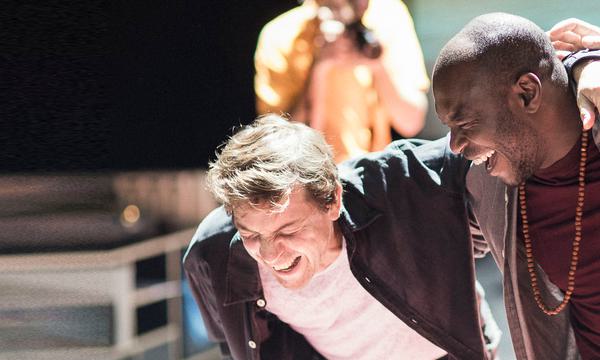
News Story
First things first – what is Counting and Cracking all about?
Counting and Cracking is a multi-generational epic centred around one family as they break apart and come back together, leaving Sri Lanka for Australia.
The play opens on a riverbank in Sydney, where a woman named Radha and her son, Siddhartha, have come to pour Radha’s mother’s ashes into the ocean. To them, this ritual marks a final separation between their new lives in Australia and their past in Sri Lanka – but a phone call from Colombo soon reveals that everything is not as resolved as they had thought.
Rooted in the political, historical and cultural context of Sri Lanka and Australia, the play is also a wider meditation on identity, migration and belonging. It speaks to the concept of democracy, asking questions about who is left out when the majority rules.
Who are the creators?
S Shakthidharan, better known as Shakthi, is a writer, director and producer for film and theatre. He grew up in Western Sydney, but has Tamil Sri Lankan heritage. His family left Sri Lanka when civil war broke out in 1983 and when Shakthi was a baby. The violence was, in part, a consequence of the divisive politics waged by successive Sinhalese nationalist governments. After arriving in Australia, Shakthi’s parents rarely spoke about their history, instead living what Shakthi describes as a ‘life of assimilation’.
Counting and Cracking marked Shakthi’s debut as a writer, but he has since staged Stay, an original play which premiered at the Sydney Festival this year, and adapted Zana Fraillon’s novel The Bone Sparrow for the stage, which has recently completed a UK tour with Pilot Theatre.
Shakthi worked closely with Eamon Flack, the Artistic Director of Belvoir St Theatre, to bring the play to life. Eamon has been developing new work for Belvoir since 2006 and is dedicated to creating socially engaged theatre; 'not so much just adventures of form, but adventures of content. Not just the how, but what stories are being told.’Counting and Cracking is a continuation of this ethos, with Eamon saying, ‘There’s never been anything quite like it… it tells a story about Australia that I think we haven’t seen before, not on stage, but actually is everywhere in our country.’
So it’s autobiographical?
Sort of – for Shakthi, the journey of writing this play began ten years before the play premiered in 2019, born from a hunger to know and understand his own history. Although there are similarities between Shakthi’s own family and the one portrayed on stage, in the process of researching the play, this personal quest became something bigger. Shakthi describes the process as developing a power of its own: ‘The power to help my mother reconcile with her homeland. To connect people across deep divides. The power to collapse time and join continents.’
What began as an individual pursuit became an ode to the Sri Lankan community and yet, the play has still had a profound impact on Shakthi’s own family. He’s described his mother as being ‘transformed’ by it, beginning to take part in public discussions and conversations about her experience, after decades of silence.
How did he research the play?
Shakthi started by reading everything he could about Sri Lankan history. Wanting to go deeper, he then travelled to Sri Lanka to meet members of his own family. He also read letters from his great-grandfather C Suntharalingam, a mathematician turned politician who was at one point a government minister. Over the course of a decade, he continued to have conversations with Sri Lankans all over the world, discovering increasingly diverse stories and experiences to inform his writing.
Many direct quotes from this feature in the play, including quotes from his great-grandfather and his mother. C Suntharalingam also provided direct inspiration for the name of the play through an observation in one of his letters, that democracy was about ‘the counting of heads within certain limits, and the cracking of heads beyond those limits’.
Tell me about the cast
The cast is reflective of the diversity of the experiences Shakthi learned about over the course of his research. There’s a total of 16 actors and three on-stage musicians, hailing from six different countries and speaking multiple languages. Shakthi and director Eamon Flack were committed to the authenticity of their casting, with Eamon stating that finding the right people ‘has taken us all over the world’.
This is not hyperbole – Eamon and Shakthi travelled to different cities across the world to audition their cast. When they first visited Bengaluru, India, actor Prakash Belawadi knew he had to be in the play, being ‘already in love with the script’ by the time of his audition. His wife and daughter even insisted on postponing his daughter’s wedding, so he could accept the role. While the story centres on Sri Lanka, it’s found a wider resonance with the cast; for Prakash, ‘it is about India and any other democracy of the world’.
Image gallery
A gallery carousel of 7 items
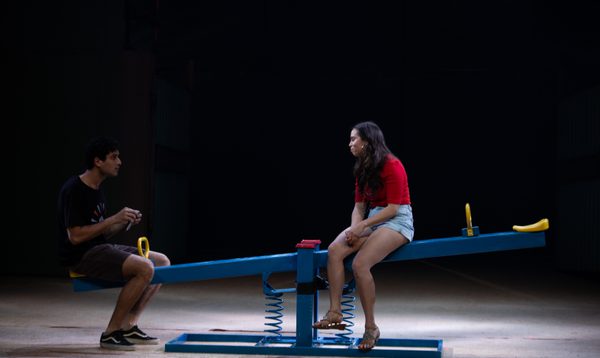
Counting and Cracking
© 2022 Credit : Jassy Earl

Counting and Cracking
© 2022 Credit : Jassy Earl
Counting and Cracking
© 2022 Credit : Jassy Earl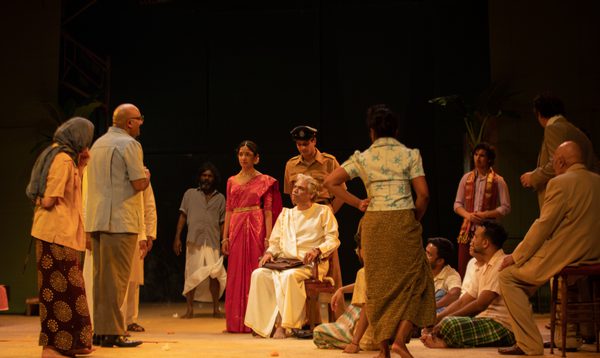
Counting and Cracking
© 2022 Credit : Jassy Earl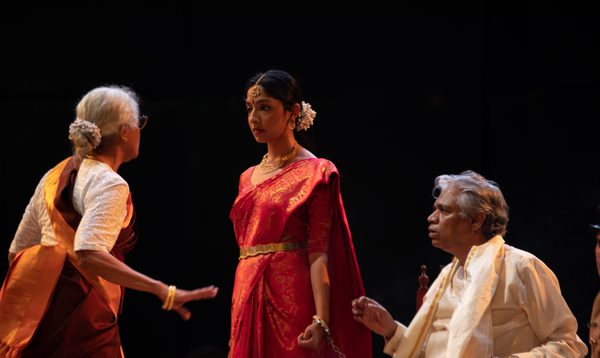
Counting and Cracking
© 2022 Credit : Jassy Earl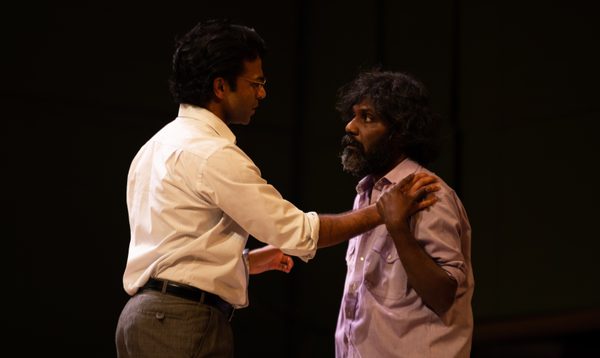
Counting and Cracking
© 2022 Credit : Jassy EarlWhat about the costumes?
Costume and cultural advisor Anandavalli worked to ensure that the costumes were true to both the cultural context of the play and the characters themselves. As the play travels through different eras, each colour palette for each character’s clothing stays consistent, creating a tapestry of colour as vibrant as the narrative itself.
Anandavalli has talked about the significance of costume, stating that ‘In the days where it was Ceylon, whether they came from the Tamil community or the Sinhalese community, people [...] reflected who they were in the fabric of the country’. Later, the costumes reflect the characters’ shifting circumstances: ‘The sadness when the cracks started showing and the destruction came into the community is also woven into the script and it’s woven into the costumes’.
One last question, how do I get my hands on tickets?
Counting and Cracking is at The Lyceum from Monday 8 to Sunday 14 August. You can book your tickets online, or call our box office on 0131 473 2000.
Just in case you need more convincing, check out the critical response to opening night!
Shot through with leavening humour and many compelling characters
An absorbing journey from separation to reconciliation, always alive to the pulse of history
A mixture of splendour and wit
A beautiful spectacle
Photo: Counting and Cracking
© 2022 Jassy Earl

